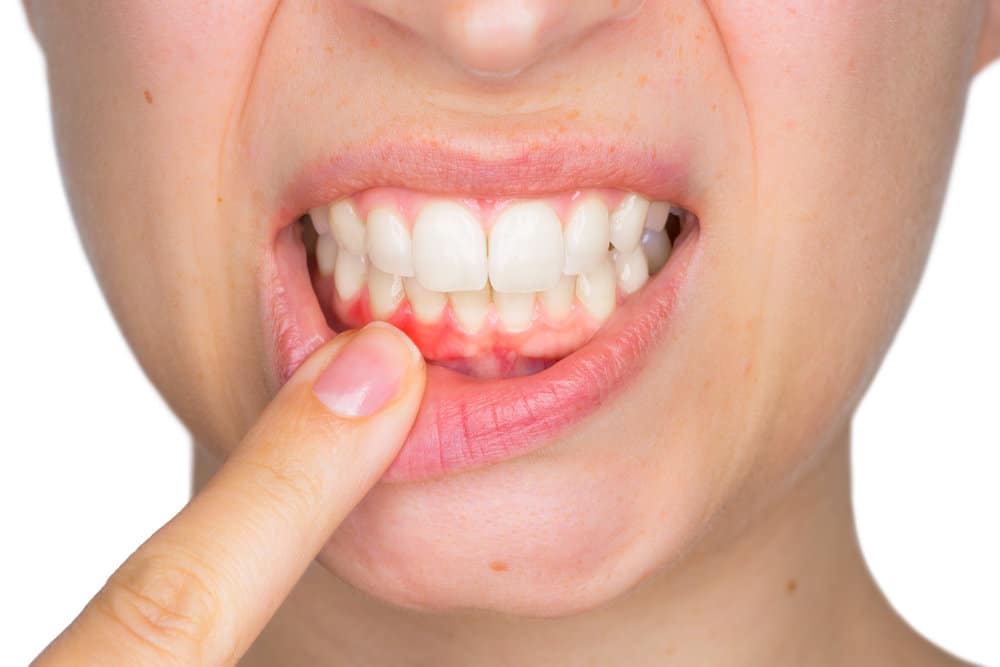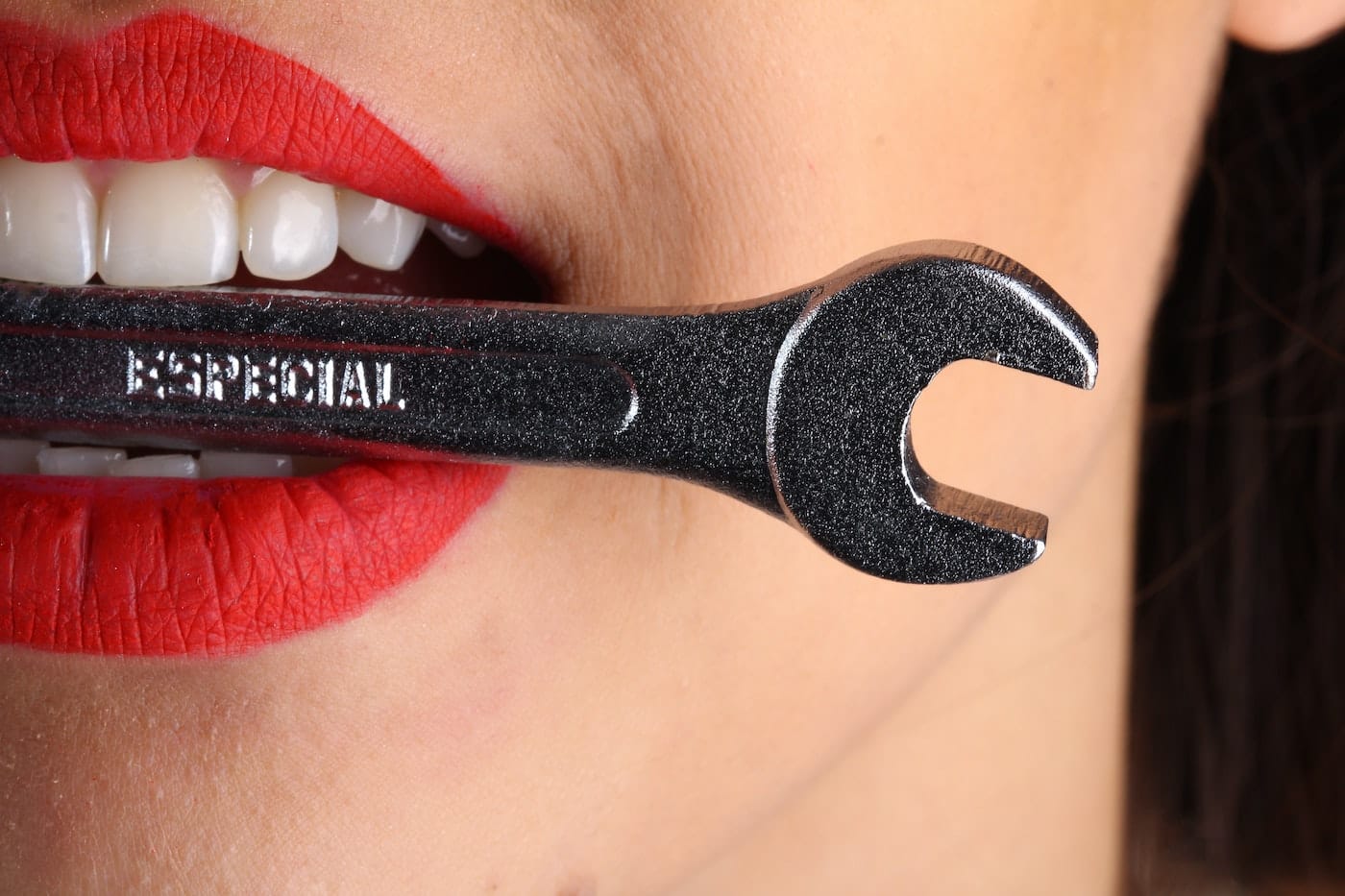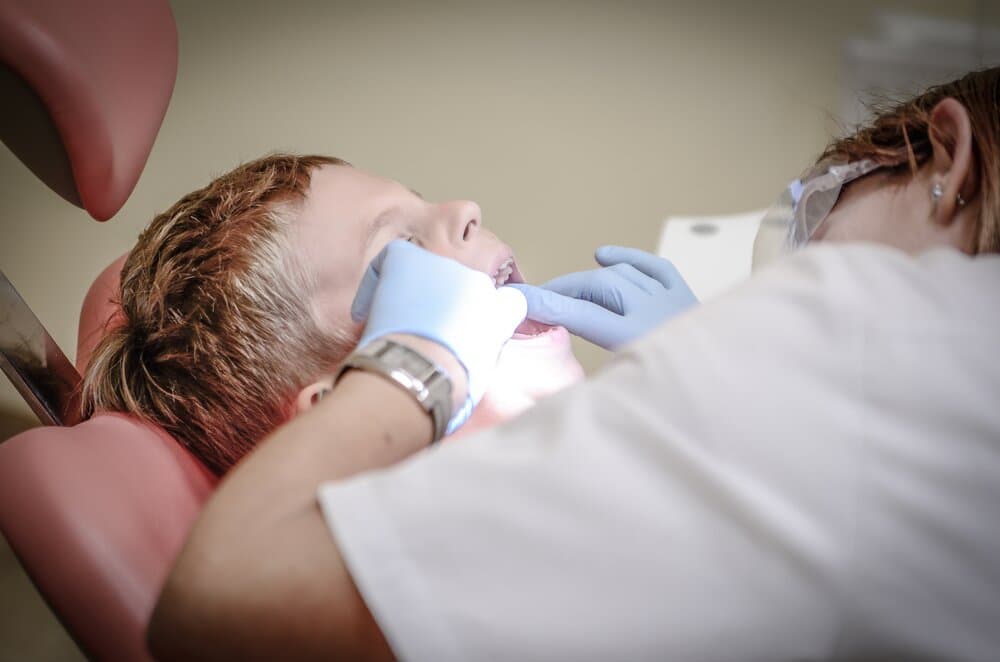As a result of patients unable to get appointments with practitioners leaving NHS work, there is a rise in patients wanting to take matters into their own hands & turning to products offering a quick fix.
According to the recent Great British Oral Health report, one in five are resorting to DIY treatment.
Companies are also using advertising posts on social media to encourage patients to self-diagnose & treat themselves for various treatments – which dental professionals warn could put people in danger.

Dental expert Anna Middleton explains which DIY dental you should avoid in order to protect your teeth and overall health from further damage:
Home Delivery & DIY Braces
The straightening of your teeth in any capacity is an orthodontics treatment that is very complicated and should only be performed by a healthcare professional.
So, any brace which you can get home-delivered and create yourself without seeing a clinician or dental professional is downright dangerous.
Straightening teeth doesn’t focus just on reducing gaps but are designed to align the upper and lower teeth to reduce wear and lessen pressure on the jaw.
Those who attempt to create their own braces don’t take into consideration the overall structure and health of their mouth.
There are numerous companies that provide clear aligners to help straighten teeth under the supervision of a dentist.
The problem is that a person ordering aligners in the mail may never set foot in a dental clinic. Taking the cheap and easy option of DIY braces can cause serious damage to your teeth.
While aligners may be an option for some, without a proper diagnosis – it’s anybody’s guess!
This DIY option has the potential to cost you your teeth, overall health and land you with a hefty dental bill just to repair the damage.
They can cause bone damage, tooth wear, tooth loss and can damage your jaw and gums, not to mention the bacteria from foreign objects that can cause infections in your mouth.
“DIY dental products should come with a health warning as they can be potentially extremely harmful. Alongside this, a lot of these products and companies are also unregulated, offering little protection for customers should something go wrong. Dentistry work goes far beyond just looking at your teeth, when you see a professional they will also consider your overall health when performing a procedure. What works for one patient, may not be good for another. If you take it upon yourself to attempt to do a dental procedure at home, the results could not only be detrimental to your teeth, but can put your health at risk.
London Hygienist Anna Middeleton:
Manual and Electric Scalers
Another product that seems to be targeting consumers in absence of dental practices being open is manual scalers to clean your teeth.
Yes, when dental plaque is not removed effectively it can build up on the teeth and gums, causing tartar or calculus.
Usually, to get rid of plaque, you would visit a dental hygienist for a ‘scale and polish’, but with the current situation, a number of companies are promoting products to allow you to do this at home.
However, such procedures should never be done at home and should only ever be done by a specialist – I don’t even scale my own teeth.
The instruments we use are specialised medical instruments and take extensive training to know how to use them safely.
Manual scalers, which require a scraping force to be effective, when used incorrectly remove significant amounts of enamel, exposing the softer underlying tissue known as dentine.
This can increase your risk of dental decay and cause sensitivity. It’s not just the hard surfaces at risk either, catch your gums and they will bleed.
This can increase your risk of infections and sepsis as well as permanently damage the gums and cause recession.
As for the electric ultrasonic scaling tools available, these are even more hazardous for your teeth and gums.
The sharp tip can vibrate up to 12000 times a minute and produce heat which can cause burns to your soft tissues – essentially the equivalent of trying to use a tiny chainsaw in your mouth.
Clip-on Veneers
Social media and the celebrity white smile have caused a sharp rise in the number of people trying clip-on veneers.
However, these were originally designed as an alternative to traditional, permanent veneers and they can be worn at the wearer’s leisure.
They were typically designed to be a ‘cheaper’ option than regular veneers and don’t involve filing down the teeth to be attached.
However, this option comes with serious risks. A lot of these alternatives don’t involve visiting a dental professional and haven’t even been approved by a dental expert, meaning the material they are made from could be toxic and permanently damage your teeth and gums. There’s also an inhalation and choking risk if poorly fitted.
These types of devices appear to sit on top of the teeth, meaning that plaque, bacteria and food debris can get trapped around and underneath the clip-on teeth, which over time will increase the risk of dental decay, gum disease and erosion, especially if eating and drinking with them in place.
Home-whitening products
Whitening is a popular procedure but should only be carried out by a dental professional who can either make you custom-made whitening trays or carry out a whitening treatment for you in the dental surgery.
The active ingredients to whiten teeth, Hydrogen Peroxide and Carbamide Peroxide, are only legally available in products from a dental practice following a change in the law in 2012 to ensure whitening was regulated.
Whitening strips also come with a risk as they are not custom-made for your teeth and there have been cases where consumers have burnt their gums or experienced extreme sensitivity.
Whitening/charcoal toothpaste also will not actually change the colour of your teeth or physically whiten them.
Neither contains whitening ingredients but instead, aim to remove surface staining with abrasive particles. However, there is no evidence to prove its effectiveness in stain removal.
In fact, it may even contribute to negative aesthetic effects as the charcoal particles can become embedded in cracks in the teeth or restoration margins around crowns, veneers and fillings, attracting further yellowing and staining over time.
I have even seen the particles embedded into the gum margin. Sometimes when people use these kinds of toothpaste there seems to be a tendency to ‘scrub’ while brushing which over time can cause abrasion and permanent damage to the enamel and gums.
It’s worth noting often these products can be missing key ingredients required to maintain healthy teeth, such as fluoride – which protects against dental decay.
London Hygienist, Anna Middletons, top tips on how to minimise enamel and tooth decay:
- Use a straw (avoid plastic ones) for drinks and rinse your mouth with water after drinking.
- Keep acids and sugars to mealtimes only and aim for no more than three to four sugary/acidic attacks per day.
- Sugar-free gum and mints increase salivary flow, which can neutralise plaque acids, help remove food debris, strengthen teeth and reduce dry mouth.
- Opt for products with Xylitol as an ingredient, which can help fight tooth decay. I like PepperSmith.
- Use a toothpaste designed to fight acid erosion twice a day. I recommend Regenerate toothpaste.
- Try to consume no more than 14 units a week – equivalent to six pints of beer or seven glasses of wine.
- Try and drink moderately over three or more days and aim for some alcohol-free days.





